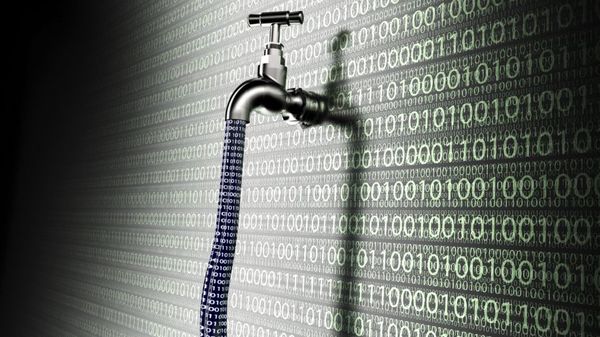
Abortion will be on the ballot in 10 states on Tuesday, and it’s one of the top issues in the presidential contest between Kamala Harris and Donald Trump. But it is also key to less publicized but increasingly contested races for seats on state supreme courts, which often have the last word on whether a state will ban or protect access to the procedure.
This year, voters in 33 states have the chance to decide who sits on their state supreme courts. Judges will be on the ballot in Arizona and Florida, where supreme courts have recently ruled to uphold abortion bans. They are also up for election in Montana, where the supreme court has backed abortion rights in the face of a deeply abortion-hostile state legislature.
In addition, supreme court judges are on the ballot in Maryland, Nebraska and Nevada – all of which are holding votes on measures that could enshrine access to abortion in their state constitutions. Should those measures pass, state supreme courts will almost certainly determine how to interpret them.
Indeed, anti-abortion groups are already gearing up for lawsuits.
“We’re all going to end up in court, because they’re going to take vague language from these ballot initiatives to ask for specific things like funding for all abortions, abortion for minors without parental consent,” said Kristi Hamrick, chief media and policy strategist for the powerful anti-abortion group Students for Life of America, which is currently campaigning around state supreme court races in Arizona and Oklahoma. “Judges have become a very big, important step in how abortion law is actually realized.”
In Michigan and Ohio, which voted in 2022 and 2023 respectively to amend their state constitution to include abortion rights, advocates are still fighting in court over whether those amendments can be used to strike down abortion restrictions. Come November, however, the ideological makeup of both courts may flip.
Spending in state supreme court races has surged since Roe fell. In the 2021-2022 election cycle, candidates, interest groups and political parties spent more than $100m, according to the Brennan Center for Justice. After adjusting for inflation, that’s almost double the amount spent in any previous midterm cycle.
In 2023, a race for a single seat on the Wisconsin supreme court alone cost $51m – and hinged on abortion rights, as the liberal-leaning candidate talked up her support for the procedure. (As in many other – but not all – state supreme court races, the candidates in Wisconsin were technically non-partisan.) After that election, liberals assumed a 4-3 majority on the Wisconsin supreme court. The court is now set to hear a case involving the state’s 19th-century abortion ban, which is not currently being enforced but is still on the books.
It’s too early to tally up the money that has been dumped into these races this year, especially because much of it is usually spent in the final days of the election. But the spending is all but guaranteed to shatter records.
In May, the National Democratic Redistricting Committee and Planned Parenthood Votes announced that they were teaming up this cycle to devote $5m to ads, canvassing and get-out-the-vote efforts in supreme court races in Arizona, Michigan, Montana, North Carolina, Ohio and Texas. Meanwhile, the ACLU and its Pac, the ACLU Voter Education Fund, has this year spent $5.4m on non-partisan advertising and door-knocking efforts in supreme court races in Michigan, Montana, North Carolina and Ohio. The scale of these investments was unprecedented for both Planned Parenthood and the ACLU, according to Douglas Keith, a senior counsel in the Brennan Center for Justice’s Judiciary Program who tracks supreme court races.
“For a long time, judicial campaign ads often were just judges saying that they were fair and independent and had family values, and that was about it. Now, you’re seeing judges talk about abortion rights or voting rights or environmental rights in their campaign ads,” Keith said.
By contrast, rightwing judicial candidates are largely avoiding talk of abortion, Keith said, as the issue has become ballot box poison for Republicans in the years since Roe fell. Still, the Judicial Fairness Initiative, the court-focused arm of the Republican State Leadership Committee, announced in August that it would make a “seven-figure investment” in judicial races in Arizona, Michigan, Montana, North Carolina, Ohio and Texas.
Balancing the federal bench
Abortion is far from the only issue over which state courts hold enormous sway. They also play a key role in redistricting, LGBTQ+ rights, voting rights and more. And with the US Congress so gridlocked, state-level legislation and its legality has only grown in importance.
For years, conservative operatives have focused on remaking the federal judiciary in their ideological image – an effort that culminated in Donald Trump’s appointments of three US supreme court justices and has made federal courts generally more hostile to progressive causes. Now, the ACLU hopes to make state supreme courts into what Deirdre Schifeling, its chief political and advocacy officer, calls a “counterbalance” to this federal bench.
“We have a plan through 2030 to work to build a more representative court,” said Schifeling, who has a spreadsheet of the supreme court races that will take place across eight states for years to come. (As a non-partisan organization, the ACLU focuses on voter education and candidates’ “civil rights and civil liberties” records.) This cycle, the organization’s messaging has centered on abortion.
“Nationally, you’re seeing polling that shows the top thing that voters are voting on is the economy. But these judges don’t really influence the economy,” Schifeling said. “Of the issues that they can actually influence and have power over, reproductive rights is by far the most important to voters.”
Abortion rights supporters are testing out this strategy even in some of the United States’ most anti-abortion states. In Texas, where ProPublica this week reported two women died after being denied emergency care due to the state’s abortion ban, former US air force undersecretary Gina Ortiz Jones has launched the Find Out Pac, which aims to unseat three state supreme court justices.
Justices Jane Bland, Jimmy Blacklock and John Devine, the Pac has declared, “fucked around with our reproductive freedom” in cases upholding Texas’s abortion restrictions. Now, Jones wants them out.
“Why would we not try to hold some folks accountable?” Jones said. “This is the most direct way in which Texas voters can have their voices heard on this issue.” (There is no way for citizens to initiate a ballot measure in Texas.) The Pac has been running digital ads statewide on how the Texas ban has imperiled access to medically necessary care.
However, since state supreme court races have long languished in relative obscurity, voters don’t always know much about them and may very well default to voting on party lines in the seven states where the ballots list the affiliations of nominees for the bench. Although the majority of Texans believe abortions should be legal in all or some cases, nearly half of Texans don’t recall seeing or hearing anything about their supreme court in the last year, according to Find Out Pac’s own polling.
“This conversation that we’re having in Texas, around the importance of judicial races, is new for us as Democrats,” Jones said. “It’s not for the Republicans.”







